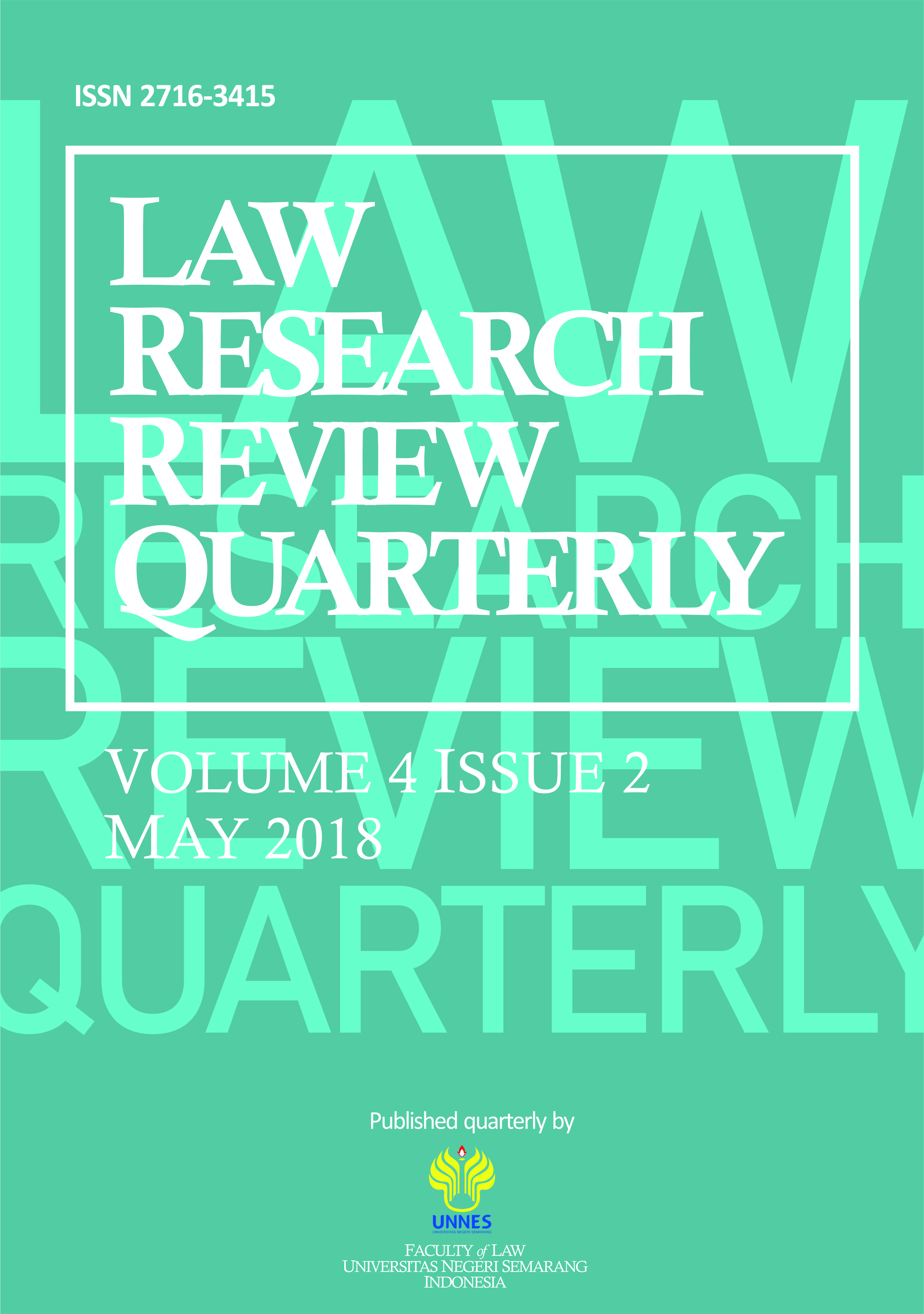Political Bride Price As Part of The Criminal Elements
Main Article Content
Abstract
The dynamics of Indonesian politics in the 2018 General Elections was marked by the emergence of political dowry issues that have been raging until now, as published by several media in Indonesia. The practice of political dowry can be understood as an underhand transaction that involves giving a certain amount of funds from a certain candidate for a particular position in the election of a political party as a political vehicle. Based on that, the purpose of this study is to find out how the motive for giving political dowry motives to the elements of the policy formulation of criminal acts regulated in Law No. 7 of 2017 concerning General Elections of political dowries and how the authority of the Election Supervisory Body in handling political dowry issues. This research is a normative juridical study and the results of this study are the granting of political dowry with any motive to fulfill the elements of a criminal offense if it exceeds the nominal limit of a minimum of 2.5 billion as stated in Article 327 of Law Number 7 of 2017 Concerning General Election and authority bawaslu as one of the most important elements in handling elections. Criminal Law Enforcement in the General Election has been carried out optimally, but coordination between elements in the Gakumdu Center as a system of law enforcement is very important to be improved in order to run an honest and fair election
Article Details
All writings published in this journal are personal views of the authors and do not represent the views of this journal and the author's affiliated institutions. Author(s) are retain the copyrights of the Article. However, before publishing, it is required to obtain written confirmation from Author(s) in order to ensure the originality (Author Statement of Originality). The statement is to be signed by at least one of the authors who have obtained the assent of the co-author(s) where applicable.This work licensed under a Creative Commons Attribution-ShareAlike 4.0 International (CC BY-SA 4.0)
References
Asshiddiqie, Jimly. (2010). Konstitusi Dan Konstitusionalisme Indonesia, Sinar Grafika; Jakarta.
Efriza, 2012, Political Explore : Sebuah Kajian Ilmu Politik, Alfabeta: Bandung.
Fadjar, A. Mukthie. (2005) Tipe Negara Hukum. Bayumedia Publishing: Malang.
Hamzah, Andi. (2001). Bunga Rampai Hukum Pidana dan Acara Pidana. Ghalia Indonesia: Jakarta.
Indrayana, Denny . (2011) Indonesia Optimis. Bhuana Ilmu Populer: Jakarta.
L. Tanya, Bernard. (2010). Teori Hukum, Strategi Tertib Manusia Lintas Ruang dan Generasi, Genta Publishing: Surabaya.
Lamintang, P.A.F. (1996). Dasar-Dasar Hukum Pidana Indonesia. PT. Citra Adityta Bakti: Bandung.
Mertokusumo, Sudikno. (1999) Mengenal Hukum: Suatu Pengantar. Liberty: Yogyakarta
Ramses M., Andy. Dkk, Editor, (2009) Politik Dan Pemerintahan Indonesia, Masyarakat Ilmu Pemerintahan Indonesia: Jakarta.
Soekanto, Soerjono dan Sri Mamuji. (2004) Penelitian Hukum Normatif “Suatu Tinjauan Singkatâ€, Raja Grafindo Persada: Jakarta.
Artikel Jurnal
Agus Riwanto, “Inkompatibilitas Asas Pengaturan Sistem Pemilu dengan Sistem Pemerintahan Presidensial di Indonesia†artikel dalam Jurnal Hukum Ius Quia Iustum, No. 4 Vol. 21 Oktober 2014
Jurnal Hukum IUS QUIA IUSTUM No. 4 Vol. 24 Oktober 2017
Janpatar Simamora, â€Menyongsong Rezim Pemilihan Umum Serentakâ€, artikel dalam Jurnal Rechtsvinding, No. 1 Vol. April 2014, hlm. 2.
Peraturan Perundang-Undangan
Undang-Undang Nomor 7 tahun 2017 Tentang Pemilihan Umum
Sumber Online
[...] http://www.bawaslu.go.id
[...] http://pl.bawaslu.go.id
[...] www.liputan6.com
[...] http://www.jurnalasia.com
[...] http://nasional.kompas.com
[...] www.faisalfarhanlaw89.wordpress.com
